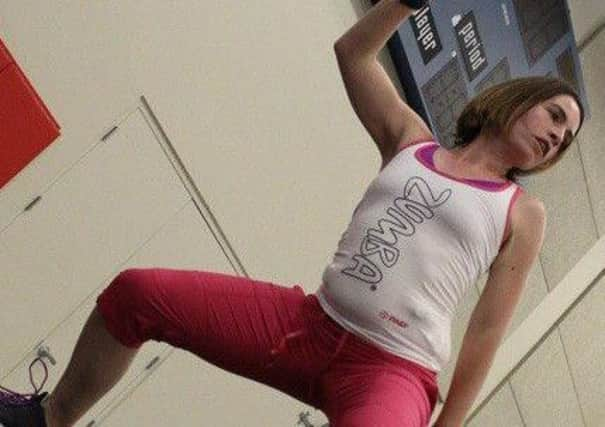App aims to help people tackle heart conditions


Patients with chronic respiratory disease in Portsmouth already have a mobile phone app linked to clinicians so they can chart their symptoms, and watch videos on how to use inhalers and exercise properly.
After a trial that showed patients with chronic obstructive pulmonary disorder went to their GP less, it will be rolled out across the area from April.
Advertisement
Hide AdAdvertisement
Hide AdNow health chiefs hope to launch a similar app – used on mobile phones and tablets – for patients with diabetes and heart conditions.


It comes as the plan to save £577m from the healthcare budget in Hampshire under the Sustainability and Transformation Plan is pushing for further use of technology.
At the same time, Portsmouth CCG, which commissions healthcare in the city, is already asking if patients would be willing to speak to a healthcare professional via Skype, email, real-time online chat or on the phone.
The CCG is also hoping to attract more GPs who may be drawn in by more flexible working, carrying out consultations at home.
Advertisement
Hide AdAdvertisement
Hide AdA document drawn up by the CCG said: ‘We would expect to see a reduction in face-to-face consultations (total numbers not necessarily time) and an increase in alternative consultation types.’


Richard Samuel, head of the STP in Hampshire, said: ‘If people use the app they reduce their reliance on accident and emergency.
‘Using the app, it’s not suitable for everybody.
‘We’ve had fantastic feedback, and lower utilisation of both secondary and emergency services.’
Ian Thompson, from My mHealth, which designed the app, added: ‘If you’re diagnosed with something then you’re given a leaflet but that doesn’t work.
‘If you digitise it then that can make it better.
Advertisement
Hide AdAdvertisement
Hide Ad‘Something like this can reach more patients than one person can reach.’
But campaigners have raised concerns that cash will be withdrawn from services in the hope that new technology will deliver big gains.
Dr Tony O’Sullivan is co-chairman of Keep Our NHS Public.
He was a doctor for more than 40 years before leaving a clinical service director role in Lewisham in London.
He said: ‘For me those things are interesting and they have to be tested very very rigorously before we rely on them.
Advertisement
Hide AdAdvertisement
Hide Ad‘There is some mobile technology in use that of course is useful but it has to be proven.
‘What they’re trying now is going from a situation where this doesn’t exist to relying on them in three or four years.
‘It’s delusional.’
But Mr Samuel said: ‘It won’t be about shutting things and hoping the intervention works.
‘It will be about introducing the interventions, most of which don’t cost a huge amount, then the capacity flows out the other side.’
Advertisement
Hide AdAdvertisement
Hide AdUnder the plans, a huge emphasis is being put on ‘prevention at scale’ of other conditions, including diabetes, obesity and stopping smoking, in what Mr Samuel calls ‘prehabilitation’.
‘Not only is the treatment improved but the rate of recovery is improved,’ he said.
CASE STUDY: Clare Gosling, 35, is a Zumba instructor and lives on
Hayling Island. She was diagnosed with Type 1 diabetes in 2009.
Here she explains her journey
Advertisement
Hide AdAdvertisement
Hide AdWhen I was diagnosed in 2009 my first initial contact was with my GP and it was face to face.
In that first week I had telephone conversations with my GP every day to give them my sugars so we could get together a plan of action.
I was then referred over to the diabetes centre where it was confirmed it was Type 1 instead of Type 2. I had a meeting with them face to face and went to meet the consultant a couple of weeks later.
Ever since it has been face to face most of the time. But there are a lot of phone calls involved in an initial diagnosis and in getting the condition under control and manageable.
Personally I quite like the idea of video interaction.
Advertisement
Hide AdAdvertisement
Hide AdSaying that, initially, when you first have the diagnosis and are starting to get things under control you need to be able to meet your consultant and the nurses, the people who are going to be dealing with your care.
They need to know what you’re like, what your background is, and you need to know that you can build a relationship with them.
If you’re both on the same page and you both agree with how things work then perhaps you could move from face to face to over the phone in a six month period.
But it can be a struggle to deal with a diagnosis.
With Type 1 diabetes some people have what’s known as a honeymoon period where your body is still producing some insulin.
That lasts anywhere between six months and two years.
Advertisement
Hide AdAdvertisement
Hide AdDuring that time everything’s great – your sugars are nice and level and then all of a sudden, boom - it’s not.
At that point you might need to go back to face to face - when you start to struggle as a person dealing with it on your own.
You need support and you need help. Often the best way to get that is in person. It can be deliverable over a telephone, or sometimes over a video screen, but it does come down to the individual person.
Regarding video consultations over Skype, I’d worry about having a secure connection. A lot of people, particularly the older generation aren’t as happy to interact over modern technology. I understand.
Advertisement
Hide AdAdvertisement
Hide AdIf it’s somebody I’d never met before I’d be a little dubious. If it was somebody I knew I’d probably be a bit happier but it would depend on what it was for.
Complications with diabetes can involve anything from sight loss to toe loss to kidney problems,
For the older generation actually going out and seeing people is a good thing. They shouldn’t be pressured into telephone consultations because sometimes going out for their check up will be the only interaction they’ll have in a week - that one trip to the doctor’s to see the diabetic nurse to get their feet checked over.
I have a yearly review at my GP with my diabetic nurse.
She checks my feet to make sure I still have feeling in my feet and I’m not suffering from diabetic neuropathy.
Advertisement
Hide AdAdvertisement
Hide AdIt is very, very important that an older person goes to see someone and is checked by a professional. They can say ‘Yes I’m fine’, but not actually be fine.
I’m of a generation that grew up with technology.
I had my first mobile when I was 13 or 14, so I’ve grown up as technology has developed.
I’m quite comfortable with technology, my kids are really comfortable with it.
I think as time goes on the NHS will probably find it beneficial to move toward a lot more video screens but there will always be those who find it very impersonal and don’t like it, even in my kids’ generation.
Everyone’s different. A lot of people like the personal interaction with others.